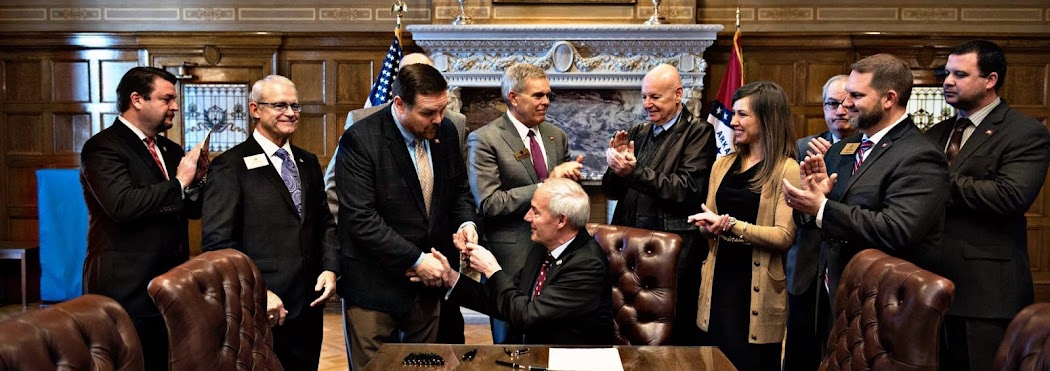I may be sleeping in the dog house for revealing this, but
my wife has a medical fascination with grotesque pimples, boils, etc. She is
not alone. “Dr. Popper” has 4.2 million subscribers on YouTube. Her videos
commonly get more than 20 million views, and now she has her own TV show. I
don’t get it, but for my wife and millions of others, it is entertaining and
informative.
This somewhat unpleasant topic does provide a useful
illustration for the corruption we recently uncovered in our State government. A boil is a bacterial infection of the skin
that if untreated will grow and fester over time. Boils are disgusting to
behold (stay with me here, I’m going somewhere with this), but never more so
than when they are treated and drained.
Our State was
controlled by one political party for 138 years. Over time, accountability and
transparency disappeared into a vacuum that reached its pinnacle during the
Clinton administration here in Arkansas. Corruption permeated the entire system.
Without some adversarial tension, without oversight, the path of least
resistance, succumbing to temptation, became the norm.
The stench we
are now experiencing is evidence that the system that created and sustained the
boil of corruption has been lanced. Arkansans have responded with understandable
revulsion. The healing process appears ugly, and it stinks, but it has begun. While
perfection in unattainable, we would be fools not to learn from the painful
experiences we have endured.
Unlike Dr. Popper’s fans who find value in the information
she provides; the citizens of Arkansas experienced the revulsion of corruption
without any compensatory benefits. If there is to be an upside to our recent
governmental moral failures, it must be in our individual and collective
responses. We let our guard down once and suffered a regrettable but
predictable consequence.
I am reminded of an incident years ago. I met the brother of
a good friend who had warned me, as an attorney, that his brother had “no use”
for lawyers and politicians. When we shook hands, this stranger I had just met wiped
his hand on his jacket. It was done in jest, but the gesture was not lost on
me.
We know that power and money invite abuse. The neighbors we
serve know that politicians and lawyers are often around both. It’s no mystery
why constituents are angry, pundits are cynical, and partisans attack
opportunistically with a broad brush. Dishonest players in State Government stink
up the whole system and make us all seem guilty by association.
Recently I
opined that “no one was benefiting from being in Little Rock.” It was my
admittedly clumsy way of saying that in my experience, I have not found the
legislators in Little Rock to be routinely corrupt. Most are simply decent people trying to make
a difference. Sadly, the dishonest few cast a shadow over all the rest.
These recent scandals do show us that honesty is not enough.
The air of power and money that public servants breathe requires more than
honesty. It requires a diligence that looks for signs of trouble. Politics is a
minefield that can obliterate the most honest among us.
With the help of God, I am personally resolved to go beyond
“merely” being an honest man. Eternal vigilance is the price of liberty. As
public servants, we must be proactive. Civility and collegiality are important,
but we must never forget that our first loyalty is not to fellow legislators.
Our allegiance is to the standards we profess, the people we serve and the
Constitutions we swear to uphold.


